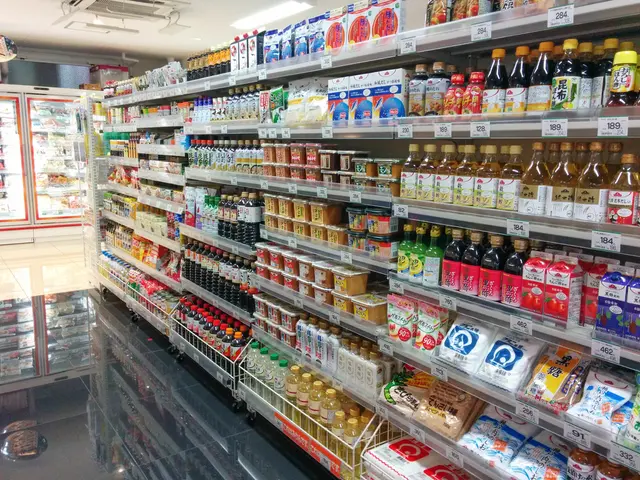Celebratory toast poured as Scotch producers rejoice over UK-India trade agreement
Nishant Sharma, a Punjab native who migrated to Glasgow over two decades ago, has been on a mission. Starting as a dishwasher before establishing Rutland Square, a spirits company named after Edinburgh's Indian consulate location, Sharma’s latest venture involves infusing gin with Assam tea, aiming to create a cross-border narrative in the spirits he sells to India. With the recent UK-India trade agreement, this ancestral connection to the tea plantations of Assam is set to flourish.
This trade deal paves the way for Major export expansion, Thus, for Nishant, this deal is like a golden opportunity—not only to reconnect with his roots but also to generate revenue and create employment opportunities in both countries.
The UK-India trade deal cuts Scotch whisky and gin tariffs in half, dropping from 150% to 75%, further lowering to 40% after a decade. Yet, it's essential to note that these reductions don't account for the Indian state tariffs, which can add an extra 150% levy on top of federal charges. Nonetheless, this change could boost UK exports to India by £1bn over the upcoming five years, the Scotch Whisky Association estimates.
India is currently the world's largest market for Scotch exports in terms of volume, with 192mn bottles exported in 2024. Though it seems small in value, at £248mn, which is just a quarter of the value of exports to the US, the UK sees immense potential in the Indian market, especially among the growing middle classes.
The industry, however, is grappling with a cyclical downturn. With consumers moving towards cheaper brands while production costs escalate, it's a relief for companies facing overflowing warehouses and cash-strapped distilleries that this deal could help limit production worries.
Key players like Diageo and Pernod Ricard welcome the new deal warmly, as it holds the potential to transform the Scotch and Scottish economies, while generating significant employment opportunities. Diageo's higher-end brands, bottled in Scotland, make up about 24% of its sales in India, while Scotch imported in bulk and bottled in India account for another 6%.
The tariff reduction is expected to boost earnings per share for companies like Diageo and Pernod Ricard by low single digits, but analysts remain cautious due to lackluster demand in the USA. On a positive note, the deal is expected to help absorb excess Scotch inventories, especially beneficial for smaller brands seeking to enter the Indian market.
Smaller distilleries would need to take advantage of this opportunity by building distribution networks, increasing marketing spend, and considering protecting their intellectual property rights. Despite these challenges, players in the industry are hopeful and excited about the forthcoming opportunities the deal presents.
Data visualisation by Janina Conboye in London
Enrichment Data:A UK-India free trade agreement signals significant benefits for Scotch whisky and gin exporters. Key points include:
- Tariff Reduction: Lowered tariffs make UK spirits more competitive in the Indian market, allowing smaller companies like Rutland Square to become more competitive against international competitors.
- Increased Access: The deal offers a larger market for Scottish exports, resulting in increased demand and potential sales growth.
- Challenges for Smaller Companies: Despite tariff reductions, smaller companies may still face competition from established brands and need to navigate Indian regulatory requirements and develop distribution networks.
- Brand Opportunities: The reduced tariffs provide an impetus for companies to invest in brand development and marketing, helping increase market share in India.
- Collaboration and Partnerships: Smaller companies may consider collaborating with larger distributors or forming partnerships with Indian businesses to enhance their brand presence and distribution capabilities.
Overall, the deal holds substantial potential for the Scotch and gin industry, offering increased market access, reduced trade barriers, and chances for growth and partnership. However, smaller companies must adapt to the competitive landscape and address challenges like regulatory compliance to fully leverage this potential.
- Nishant Sharma, with his latest venture of infusing gin with Assam tea, aims to capitalize on the reduced tariffs for UK spirits under the UK-India trade agreement, seeking to make Rutland Square more competitive in the Indian markets.
- As a result of the UK-India trade agreement, Rutland Square's ancestral connection to Assam's tea plantations is set to flourish, providing an opportunity for Nishant Sharma to reconnect with his roots and generate revenue in both countries.
- The recent tariff cuts on Scotch whisky and gin in the UK-India trade agreement could provide a significant boost for technology and finance sectors as well, since these industries are intertwined with the spirits industry in terms of lifestyle, entertainment, and consumer spending.
- The UK-India trade deal represents a milestone for the Scottish economy, not only for the Scotch whisky and gin industry but also for the introduction of innovative products like Rutland Square's regional spin on traditional spirits, paving the way for diverse investment opportunities.
- Key players in the spirits industry like Diageo and Pernod Ricard are not only focusing on boosting earnings per share through increased sales in the Indian market due to the tariff reductions but are also considering collaborating with Indian businesses and building distribution networks to optimize their market presence and leverage this deal's upcoming opportunities.







